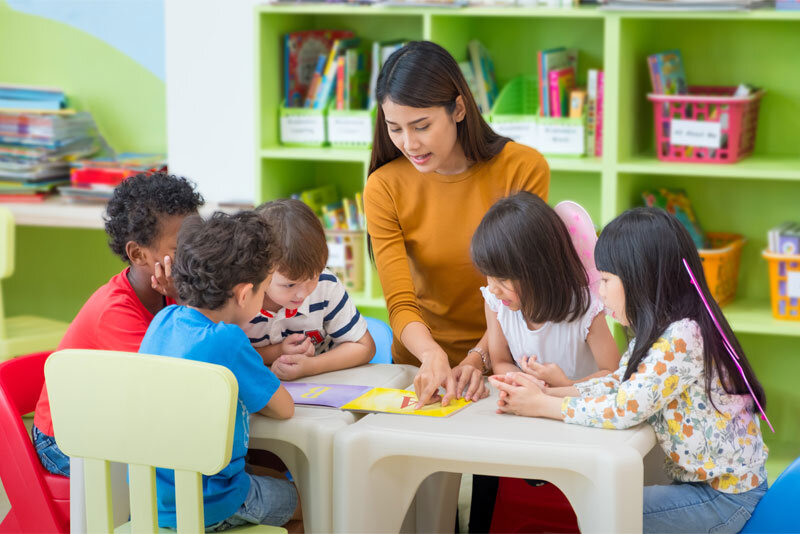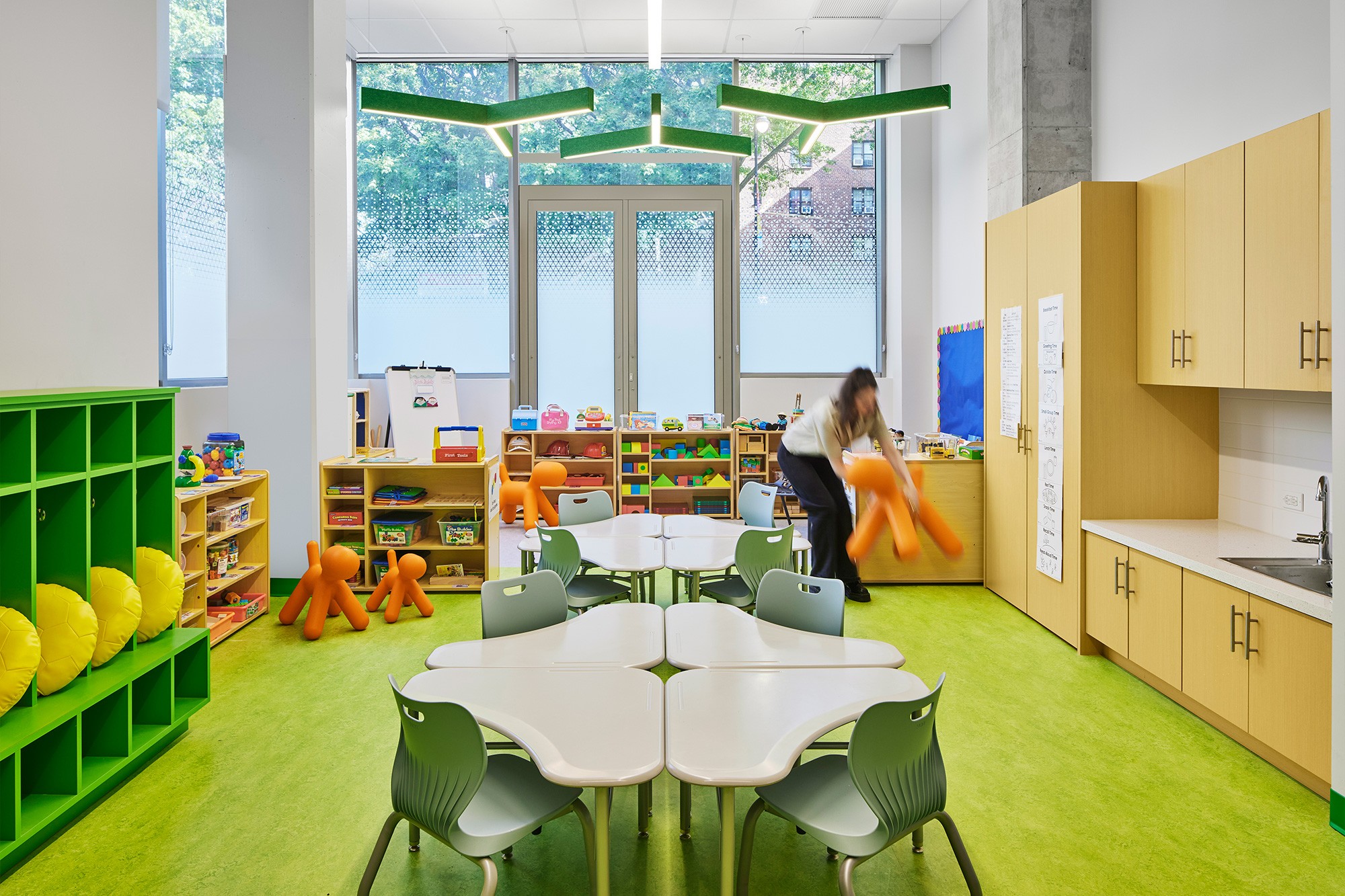The Role Of A Child Care Center In Developing Early Learning Habits
Wiki Article
The Duty of Day Care in Fostering Social Abilities and Early Discovering
Daycare acts as a considerable atmosphere for children, assisting in crucial social communications that advertise early learning. In this structured setting, children engage with caregivers and peers, creating crucial interaction and cooperation skills. As they browse play and different tasks, they find out to deal with conflicts and construct emotional intelligence. Understanding the subtleties of these interactions discloses the profound influence day care has on a child's advancement, shaping their future relationships and scholastic preparedness. What specific skills do children acquire in this setting?The Value of Social Interaction in Childcare
While several parents identify the importance of early childhood education and learning, the function of social communication in childcare is commonly taken too lightly. Childcare settings give children with important chances to engage with peers, fostering important social abilities. During these formative years, youngsters discover to browse various social characteristics, such as sharing, cooperation, and problem resolution. Engaging with diverse age teams and characters enhances their ability to adapt to various settings and develop empathy towards others.
Structure Interaction Skills Via Play
Play serves as an effective medium for kids to develop essential interaction skills in day care settings. With different play activities, youngsters talk, reveal their ideas, and find out to pay attention to others. Parlor games, as an example, encourage them to make use of language in different contexts, advertising vocabulary expansion and understanding of social cues.
In addition, narration during playtime allows kids to convey feelings and concepts, helping them establish narrative abilities and confidence in their verbal expressions. In general, play not just works as a satisfying leisure activity but likewise as a necessary system for developing the communication skills essential for successful social communications in later life.
Motivating Teamwork and Team Effort
Teamwork and team effort are crucial abilities that youngsters can grow in day care settings. Through different group tasks, such as constructing tasks or joint video games, kids discover to share obligations and pursue typical objectives. These communications cultivate an understanding of the value of paying attention to others, negotiating roles, and jeopardizing when needed.In day care settings, caregivers often create chances for kids to participate in teamwork by motivating them to take part in team jobs. This not just helps kids create social bonds yet likewise grows a sense of belonging and neighborhood.
As they navigate these cooperative experiences, children gain useful understandings right into the dynamics of dealing with peers. They learn to appreciate diverse perspectives and recognize that each participant adds distinctly to the group initiative. Eventually, these early lessons in teamwork and teamwork prepared for healthier connections and effective partnership in future social and scholastic setups.
Structured Discovering Activities and Cognitive Growth
Structured knowing tasks play an essential role in fostering cognitive development in children (Childcare North York). These activities, which consist of puzzles, storytelling, and hands-on experiments, promote critical reasoning and analytical abilities. In a day care setup, organized understanding motivates youngsters to engage with their peers, boosting their click here for more info ability to procedure info and recognize various principles
With assisted play and interactive jobs, children establish foundational skills such as numeracy and proficiency. As an example, tasks focused around numbers can assist children comprehend mathematical concepts, while storytelling enhances language purchase and comprehension. Furthermore, structured knowing permits teachers to evaluate developmental progression and dressmaker tasks to private knowing requirements.

Integrating a varied variety of structured activities not just promotes cognitive growth however additionally prepares kids for future academic success. By giving a balanced environment that fosters exploration and inquiry, day care programs play a crucial duty in forming the cognitive abilities of young students.
Cultivating Emotional Intelligence and Self-confidence
Emotional knowledge and self-confidence are crucial components of a child's advancement, enhancing the cognitive skills cultivated with structured discovering activities. In day care setups, kids are offered with opportunities to express their emotions and engage in social interactions, which are vital for constructing psychological awareness. Via guided play and group activities, youngsters learn to determine their feelings, identify those of others, and create compassion.In addition, interaction with peers and caretakers assists to grow self-worth and durability. Favorable reinforcement and support from adults equip kids to take risks and face challenges, cultivating a feeling of accomplishment. As they browse social characteristics, children develop confidence in their capacities to interact, collaborate, and resolve problems - Daycare North York. This caring environment enables the steady advancement of emotional intelligence, which is essential for future social relationships and overall health. As an outcome, childcare plays a considerable duty in fostering both psychological knowledge and self-confidence in little ones
Regularly Asked Inquiries
Just How Can Parents Pick the Right Day Care for Their Child?
Moms and dads must consider elements such as area, personnel certifications, safety standards, curriculum, and reviews from other moms and dads when picking the appropriate childcare for their child, guaranteeing it lines up with their youngster's developing needs and family values.
What Age Is Best for Starting Childcare?

How Does Daycare Influence Kid's Habits in the house?
Daycare usually positively affects kids's habits at home by improving social skills, advertising more info here freedom, and encouraging psychological law (Childcare This Site Near Me). Consequently, youngsters may display better interaction and participation, leading to more unified household dynamicsExist Any Kind Of Disadvantages to Day Care Attendance?
Yes, there are downsides to childcare presence, including prospective separation anxiety, exposure to health problems, and irregular caregiving. These aspects can affect a child's psychological well-being and adjustment in your home, impacting total family dynamics.Just How Can Moms And Dads Assistance Social Skills Learned at Daycare?
Moms and dads can sustain social skills discovered at childcare by helping with playdates, motivating cooperative tasks, modeling positive communications, discussing sensations, and enhancing sharing and interaction at home, thereby improving their child's social growth and confidence.Day care serves as a considerable setting for young kids, helping with essential social communications that promote very early discovering. Day care settings give children with important chances to engage with peers, promoting vital social abilities. Play offers as an effective tool for youngsters to build critical interaction skills in childcare setups. In childcare setups, children are offered with chances to reveal their feelings and involve in social communications, which are vital for building emotional recognition. Daycare commonly favorably influences children's actions at home by boosting social abilities, promoting independence, and encouraging psychological regulation.
Report this wiki page